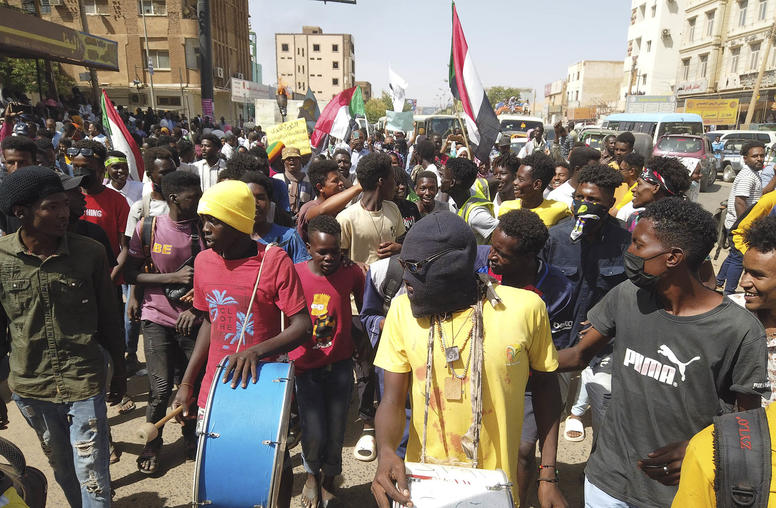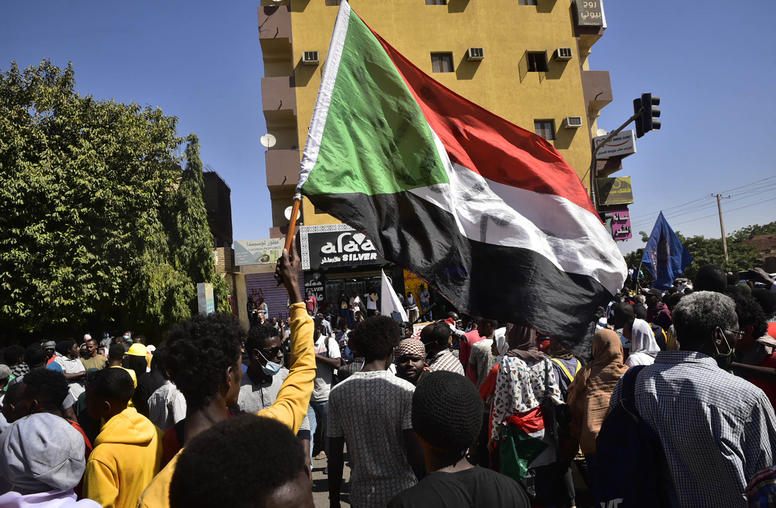Research & Analysis
U.S. Institute of Peace’s articles, reports, tools and other features provide policy analysis, research findings, and practitioner guides. These publications examine critical conflict issues at the center of the Institute’s work to prevent and resolve violent conflict.
The views expressed in these publications are those of the author(s).

The Red Sea Crisis Goes Beyond the Houthis
The Red Sea is in crisis. At the center of the storm are Yemen’s Houthi rebels, who have unleashed a wave of attacks on ships traversing one of the world’s most pivotal maritime straits, putatively in support of Hamas’s war against Israel. The Houthi gambit in the Red Sea is imposing serious costs on global trade, as did the problem of Somali piracy, which reached its peak in 2010. The United States and some of its allies have stepped in to militarily suppress the threat, bombing Houthi positions inside Yemen. But although this episode is illustrative of the difficulties of Red Sea security, the crisis extends far beyond the trouble emanating from Yemen.

Susan Stigant on Sudan’s Civil War and Deepening Humanitarian Crisis
More than a year into Sudan’s civil war, the country is facing the “the world’s worst humanitarian crisis” as international aid struggles to find its way to those in need, says USIP’s Susan Stigant: “At this point, unfortunately, all of the efforts collectively are not meeting the needs” of Sudanese citizens.

Four Priorities for Sudan a Year into the Civil War
This week marks a year of war in Sudan. A once promising revolution that led to the overthrow in 2019 of the country’s longtime dictator, Omar al-Bashir, has devolved into a devastating civil war. The fighting started over a dispute on how to incorporate the paramilitary Rapid Support Forces (RSF) into the country’s military, the Sudan Armed Forces (SAF). A year later as the conflict between the RSF and SAF grinds on, Sudan is experiencing the world’s worst displacement crisis and one of the world’s worst hunger crises in recent history.

The Pivotal Elections of 2024: Key Races That Will Shape the Global Landscape
Around 2 billion people in more than 50 countries, including India, Chad, Mexico and South Africa, will go to the polls this year in what has been described as the Super Bowl of elections. From major democracies to emerging nations, the outcomes of these votes will undoubtedly play a crucial role in shaping the future trajectory of countries around the world. While some elections could produce conflict, most will take place under the threat of disruption — all of this will have serious implications for U.S. foreign policy and security.

Susan Stigant on the Recent Crises in the Red Sea
While the U.S. tends to separate its policies on Africa and Middle East, USIP’s Susan Stigant says recent crises in the Red Sea highlight that “this is really an interconnected space” that currently lacks “any infrastructure … that connects together those who are making decisions” along the sea’s eastern and western shores.

Houthi Attacks in the Red Sea Disrupt Global Supply Chains
Drone and missile attacks by Yemen-based, Iranian-backed Houthi rebels on ships in the Red Sea have disrupted global supply chains. The United States has responded to these attacks by shooting down Houthi drones, and the Biden administration has set up a 10-nation naval task force to protect ships traveling along this important route.

Civil War Pushes Sudan to the Brink of Humanitarian Disaster
Away from the headlines dominated by the wars in Gaza and Ukraine, a civil war between Sudan’s military and the paramilitary Rapid Support Forces (RSF) is pushing the country to the brink of a humanitarian catastrophe. As an allegedly genocidal RSF gains the upper hand, a U.N. official has warned that Sudan is “facing a convergence of a worsening humanitarian calamity and a catastrophic human rights crisis.”

Countering Coups: How to Reverse Military Rule Across the Sahel
Three years of coups around Africa’s Sahel region — eight of them in six nations, from Guinea on the Atlantic to Sudan on the Red Sea — leave many African and other policymakers frustrated over how to respond. The Sahel’s crises have uprooted more than 4 million people and could add millions more to our record levels of global human migration as Africa’s population grows and its climate destabilizes. Yet the pattern of coups and other evidence — notably from USIP’s Sahel fieldwork, counter-coup research and bipartisan analysis teams — offer guidelines for effective responses by African, U.S. and international policymakers.

Sudan’s Crisis Offers New Lessons for Building Peace in the Sahel
Sudan’s five-week war has killed or wounded over 5,000 people, uprooted a million more — and reignited understandable frustrations over how U.S. and international policies can better prevent or respond to such upheavals. Amid heated policy debates, we should step back briefly to pinpoint lessons from this crisis that can improve our responses in Sudan and across the Sahel’s web of coups, insurgencies and extremism. Indeed, that task is urgent — both to address the complex evolutions in the region’s crises and to build support for smarter, steadier engagement, rather than a self-defeating retreat from the Sahel by global partners seeking democracy and stability.

Sudan: Engage Civilians Now, Not Later
Over the last month, a series of cease-fires in Sudan have yielded minimal results. Fighting between the Sudan Armed Forces (SAF) and the Rapid Support Forces (RSF) has continued and even intensified in some places. While the capital Khartoum and areas surrounding key infrastructure remain the core battlegrounds, the clashes have spread into other parts of the country.